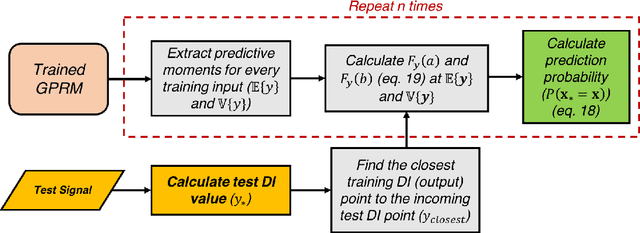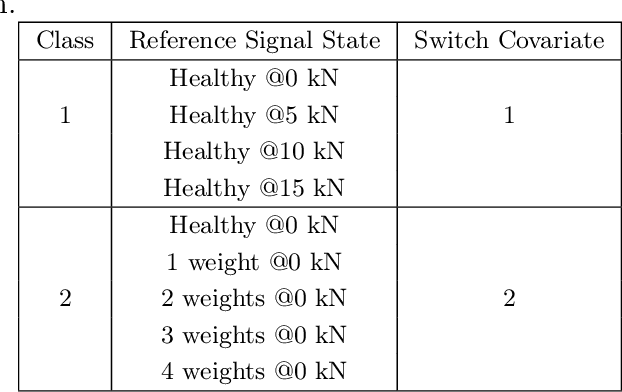Gaussian Process Regression for Active Sensing Probabilistic Structural Health Monitoring: Experimental Assessment Across Multiple Damage and Loading Scenarios
Paper and Code
Jun 28, 2021



In the near future, Structural Health Monitoring (SHM) technologies will be capable of overcoming the drawbacks in the current maintenance and life-cycle management paradigms, namely: cost, increased downtime, less-than-optimal safety management paradigm and the limited applicability of fully-autonomous operations. In the context of SHM, one of the most challenging tasks is damage quantification. Current methods face accuracy and/or robustness issues when it comes to varying operating and environmental conditions. In addition, the damage/no-damage paradigm of current frameworks does not offer much information to maintainers on the ground for proper decision-making. In this study, a novel structural damage quantification framework is proposed based on widely-used Damage Indices (DIs) and Gaussian Process Regression Models (GPRMs). The novelty lies in calculating the probability of an incoming test DI point originating from a specific state, which allows for probability-educated decision-making. This framework is applied to three test cases: a Carbon Fiber-Reinforced Plastic (CFRP) coupon with attached weights as simulated damage, an aluminum coupon with a notch, and an aluminum coupon with attached weights as simulated damage under varying loading states. The state prediction method presented herein is applied to single-state quantification in the first two test cases, as well as the third one assuming the loading state is known. Finally, the proposed method is applied to the third test case assuming neither the damage size nor the load is known in order to predict both simultaneously from incoming DI test points. In applying this framework, two forms of GPRMs (standard and variational heteroscedastic) are used in order to critically assess their performances with respect to the three test cases.
 Add to Chrome
Add to Chrome Add to Firefox
Add to Firefox Add to Edge
Add to Edge